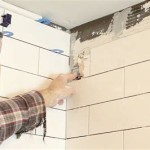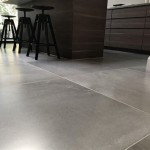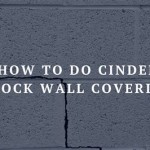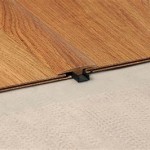How to Remove Hard Water Stains From Bathroom Tiles
Hard water stains, those unsightly white or yellowish deposits, can be a persistent problem in bathrooms. They are often caused by the buildup of minerals such as calcium and magnesium, which are dissolved in hard water. These minerals leave behind a residue on tiles, grout, and fixtures, dulling their appearance and making them look dirty. Fortunately, with the right cleaning techniques and products, you can effectively remove hard water stains and restore your bathroom to its former glory.
1. Understanding Hard Water and Its Impact
Hard water is a common problem in many areas, particularly those with a high concentration of calcium and magnesium in the water supply. When this water evaporates, these minerals are left behind, forming a crusty deposit that can be difficult to remove. Over time, hard water stains can become deeply embedded in the surface of tiles and grout, making them more resistant to cleaning. The impact of hard water extends beyond aesthetic concerns. It can also damage plumbing fixtures and appliances, leading to decreased efficiency and premature wear and tear.
2. Cleaning Techniques for Hard Water Stain Removal
There are several effective methods for removing hard water stains from bathroom tiles. The choice of cleaning technique depends on the severity of the stain and the type of tile surface. Here are some common approaches:
a. Vinegar and Baking Soda
A simple and effective solution for removing hard water stains is a mixture of vinegar and baking soda. Vinegar's acidity helps to break down mineral deposits, while baking soda acts as a mild abrasive. To use this method, mix equal parts of white vinegar and water in a spray bottle. Apply the solution to the stained areas and let it sit for 15-20 minutes. Then, sprinkle baking soda on the stains and gently scrub using a soft-bristled brush. Rinse the area thoroughly with water and dry with a clean cloth.
b. Commercial Cleaners
For more stubborn stains, commercial cleaners specifically designed for hard water removal can be very effective. These cleaners often contain strong acids, such as citric acid or hydrochloric acid, which can break down stubborn mineral deposits. Always follow the manufacturer's instructions carefully and use appropriate protective gear, such as gloves and eye protection. It is also crucial to ensure that the cleaner is compatible with the type of tile being cleaned.
c. Pumice Stone
A pumice stone is a natural abrasive that can be used to gently scrub away hard water stains. This method is particularly effective on rougher tiles or grout lines. Wet the pumice stone and gently rub it over the stained areas in a circular motion. Be careful not to apply too much pressure, as this could scratch the tile surface. Rinse the area thoroughly with water and dry with a clean cloth.
3. Preventive Measures
While cleaning techniques can effectively remove existing hard water stains, it is crucial to implement preventive measures to minimize their recurrence. Here are some strategies:
a. Water Softeners
Installing a water softener can significantly reduce the mineral content of your water supply, preventing hard water stains from forming in the first place. Water softeners work by exchanging calcium and magnesium ions with sodium ions, resulting in softer water. Although this option requires an upfront investment, it can save you time, effort, and money in the long run.
b. Regular Cleaning
Regular cleaning is crucial to prevent hard water stains from becoming deeply embedded in your tiles and grout. Clean your bathroom regularly, using a mild cleaner and avoiding harsh chemicals that can damage the tile surface. This will help to remove mineral deposits before they have a chance to build up and cause stains.
c. Drying Surfaces
After showering or bathing, make sure to dry the shower walls and tiles to prevent water droplets from leaving behind mineral deposits. You can use a squeegee or a towel to wipe down the surfaces, minimizing the chance of hard water stains forming.
By understanding the causes of hard water stains and implementing appropriate cleaning techniques and preventive measures, you can effectively remove these unsightly deposits and maintain a sparkling clean bathroom.

How To Remove Hard Water Stain From Tile And Grout

3 Best Ways To Get Rid Of Hard Water Stains From Bathroom Tiles Kent

How To Remove Hard Water Stains From Tile And Grout Woodard

How To Remove Stains From Bathroom Tiles

How To Clean Bathroom Tiles Problems With Their Solutions 2024

Shower Cleaning Makeover Removing Limescale From Glass Door And Grout Tiles

How To Clean Hard Water Stains From Bathroom Tiles

6 Cleaning S To Remove Hard Water Stains From Tiles

Home Dzine Bathrooms Remove Hard Water Stains And Mould

How To Clean Tiles With Stubborn Stains Bathroom Hardone Forums
Related Posts








